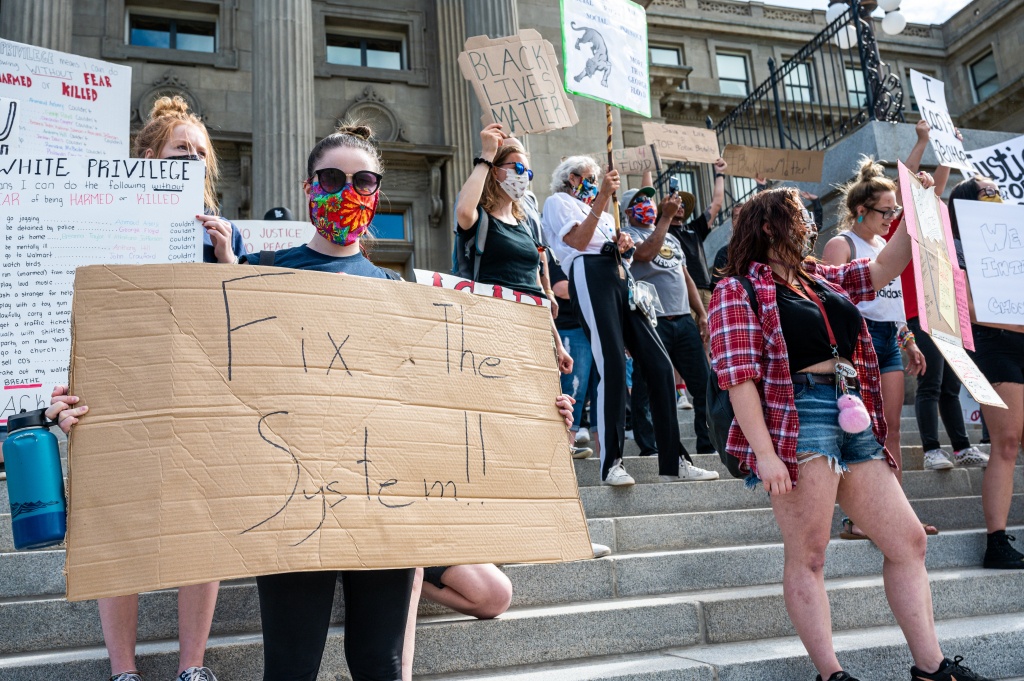Election 2022: Greenlining’s Endorsements for Advancing Racial Equity

These midterms will be one of the most consequential elections in recent memory with the future of our democracy very much on the ballot. We’re going up against legislative attacks on reproductive freedom and healthcare, election deniers up and down the ticket, and the potential for right-wing legislators to gain footing in both chambers of Congress. The outcomes of these issues will no doubt have serious implications for our communities which is why it’s essential to show up and show out this election season.
Here in California, we can continue to move the needle on important issues like closing the racial wealth gap and confronting climate change. And nationally, we must stand in solidarity with communities of color who are mounting a defense against dangerous policies that seek to erode or strip away our rights.
The Greenlining Institute creates a future where communities of color can build wealth, live in healthy places filled with economic opportunity, and are ready to meet the challenges posed by climate change. We produced this voter guide with racial equity and systems change guiding us as our north star.
Our endorsements reflect our organizational priorities and our vision for a future where race is never a barrier to opportunity. As an organization based in Oakland, California, we are also weighing in on some of the most important issues facing this city, including the housing crisis.
Here are our endorsements:
Vote Yes on Prop 1: The Greenlining Institute supports Proposition 1 that would amend California’s Constitution to protect reproductive freedom and ensure all people have the fundamental right to choose whether or not to have an abortion, and use contraceptives without state interference.
Nationally speaking, half of all people who seek abortions live below the poverty level, while 75% qualify as low-income. In the most recent data from the CDC in 2019, Black women had the highest rate of abortions with 23.8 abortions per 1,000 women, Hispanic women had 11.7 abortions per 1,000 women and white women had the lowest rate: 6.6 abortions per 1,000 women. Low-income communities of color will be affected by abortion bans, who are already affected by poverty, lack of health care and racism in the health care system.
Following the Supreme Court’s ruling to overturn Roe v. Wade, at least 13 states have enacted laws restricting access to this critical health care, and many more are poised to pass legislation further restricting these rights. Proposition 1 is California’s opportunity to enshrine this right once and for all in our Constitution and protect this fundamental right in our state.
Vote Yes on Prop 30: The Greenlining Institute supports Proposition 30 that would create a new, equitable funding source to subsidize zero-emission vehicles, and fund wildfire response and prevention through a new tax on California’s top-earning residents. Those with incomes above $2 million, would be required to pay a $1.75 percent personal income tax in an effort to increase ZEV purchase, and infrastructure.
California is on track to become the 4th largest economy in the world enabling the state to invest our considerable resources in Californians who need it most, including communities hit hardest by climate change. However, as California undertakes ambitious climate initiatives, like banning the sale of new gas-powered vehicles by 2035, the state runs the risk of leaving low-income communities behind in the transition to zero-emission electric vehicles if we do not make equity a priority. Prop 30 is an opportunity to increase access to the burgeoning green economy and the dual economic and environmental benefits of electric vehicles, while helping California achieve our ambitious climate goals.
Vote Yes on Measure Q (Oakland): The Greenlining Institute supports the City of Oakland’s Measure Q allowing the city to construct up to 13,000 new low-income units of social housing.
More than two in five Californians are spending over 30% of their income on housing, and millions are struggling to afford housing near jobs, transit and good schools. However, due to historical and racist barriers to affordable housing production, Article 34 of California’s Constitution requires local governments to hold an election every time a low-rent building is constructed with 51% or more of government funds.
The Greenlining Institute supports Measure Q because it paves the way for the creation of 13,000 new affordable housing units while using the unique social housing model that will benefit the most vulnerable residents in Oakland who are predominantly low-income, people of color.
Vote Yes on Measure T (Oakland): The Greenlining Institute supports the City of Oakland’s Measure T seeking to replace the existing flat business tax with a new progressive structure that would tax the highest revenue-earning business at a higher rate, and provide lower rates for smaller businesses.
An overhaul of Oakland’s tax code is desperately needed to ensure an equitable playing field for small businesses. This City is home to over 20,000 small businesses and 70% of them are owned by women and people of color. The Greenlining Institute is proud to stand by our small businesses by supporting Measure T.
Vote Yes on Measure S (Oakland): The Greenlining Institute supports Measure S allowing community members who do not have legal citizenship status, who are parents, guardians, caregivers in Oakland, to vote for a School Board Director to serve on the Oakland Unified School District Board of Education.
The City of Oakland is home to over 13,000 such parents and guardians whose children receive education from OUSD. This leaves thousands of students without representation to advocate on behalf of their students for decisions impacting their education, and most importantly, their future. Inviting the perspectives of all guardians–regardless of their citizenship status–on curriculum leads to better academic outcomes, but deepening their disenfranchisement, does not. Our organization believes in providing all residents the ability to participate in democratic processes that impact the lives of their children.
Ultimately, no matter how you vote, we urge everyone who is able to register and vote to do so–for ourselves and for those who don’t have the ability. Follow this link to check your registration and review your Voter Bill of Rights. Whether you vote by mail or in person, you can make a difference for all of us.




